We are delighted to inform you that we will be present at The Society for Applied Anthropology Annual Meeting in Philadelphia, Pennsylvania, April 3-7, 2018. Please stop by our table to browse the latest selection of books at discounted prices & pick up some free journal samples.
If you are unable to attend, we would like to provide you with a special discount offer. For the next 30 days, receive a 25% discount on all Anthropology titles found on our website. At checkout, simply enter the discount code SfAA18
Visit our website to browse our newly published interactive online Anthropology & Sociology Catalog or use the new enhanced subject searching features for a complete listing of all published and forthcoming titles.
Here is a preview of some of our newest releases on display:
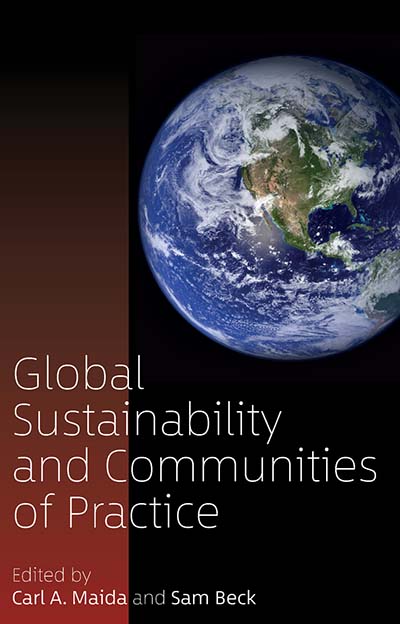 GLOBAL SUSTAINABILITY AND COMMUNITIES OF PRACTICE
GLOBAL SUSTAINABILITY AND COMMUNITIES OF PRACTICE
Edited by Carl A. Maida and Sam Beck
Collaboration between experts and the public is vital for effective community engagement aimed at improving the lives of the most vulnerable in society, whether at the local or global level. Using case-based and theoretical chapters that examine rural and urban communities of practice, this volume illustrates how participatory researchers and students, as well as policy and community leaders, find ways to engage with the broader public when it comes to global sustainability research and practice.
Read Introduction: Towards Global Sustainability and Communities of Practice
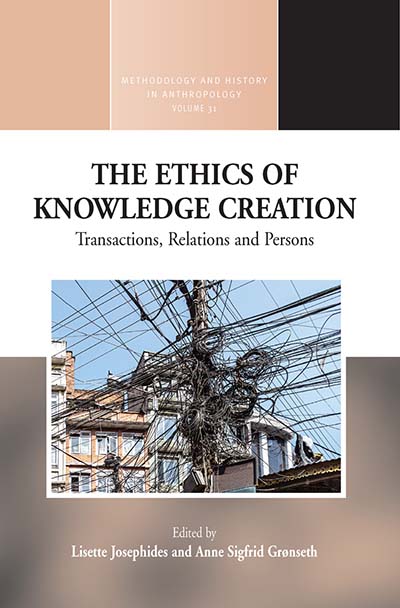 THE ETHICS OF KNOWLEDGE CREATION
THE ETHICS OF KNOWLEDGE CREATION
Transactions, Relations, and Persons
Edited by Lisette Josephides and Anne Sigfrid Grønseth
Volume 31, Methodology & History in Anthropology
The Ethics of Knowledge Creation focuses on how knowledge is relationally created, how local knowledge can be transmuted into ‘universal knowledge’, and how the transaction and consumption of knowledge also monitors its subsequent production. This volume examines the ethical implications of various kinds of relations that are created in the process of ‘transacting knowledge’ and investigates how these transactions are also situated according to broader contradictions or synergies between ethical, epistemological, and political concerns.
Read Introduction: The Ethics of Knowledge-Creation
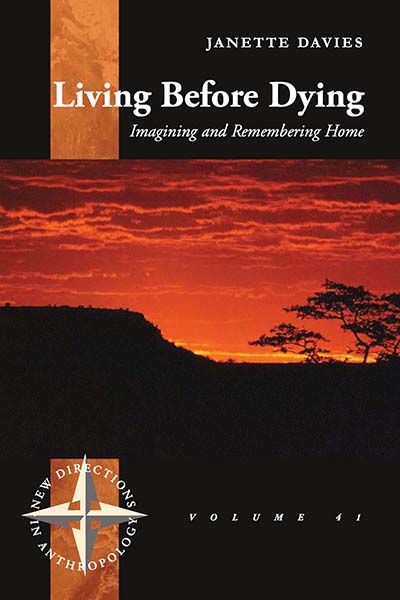 LIVING BEFORE DYING
LIVING BEFORE DYING
Imagining and Remembering Home
Janette Davies
Foreword by Lord Nigel Crisp
Volume 41, New Directions in Anthropology
“Living Before Dying is an important and timely contribution to a rising body of social scientific and bioethical work about dementia, including the anthropology of senility. It should be read by all those who want care to improve for older people, with and without dementia.” • Times Higher Education
Read Introduction
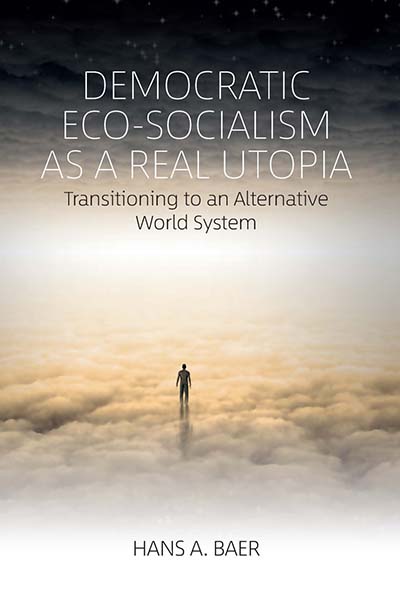 DEMOCRATIC ECO-SOCIALISM AS A REAL UTOPIA
DEMOCRATIC ECO-SOCIALISM AS A REAL UTOPIA
Transitioning to an Alternative World System
Hans A. Baer
In Democratic Eco-Socialism as a Real Utopia, Hans Baer outlines the urgent need to reevaluate historical definitions of socialism, commit to social equality and justice, and prioritize environmental sustainability. Democatic eco-socialism, as he terms it, is a system capable of mobilizing people around the world, albeit in different ways, to prevent on-going human socio-economic and environmental degradation, and anthropogenic climate change.
Read Introduction
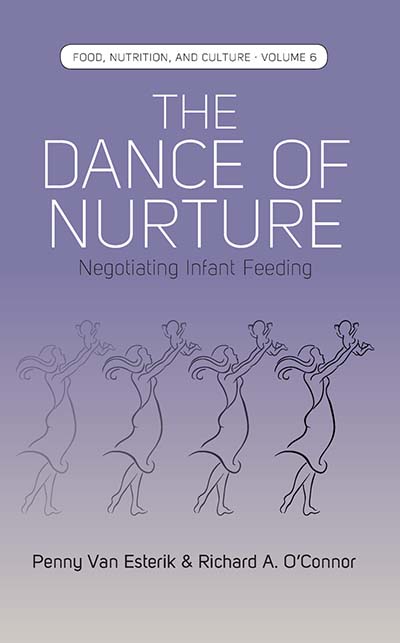 THE DANCE OF NURTURE
THE DANCE OF NURTURE
Negotiating Infant Feeding
Penny Van Esterik and Richard A. O’Connor
Volume 6, Food, Nutrition, and Culture
The Dance of Nurture integrates ethnography, biology and the political economy of infant feeding into a holistic framework guided by the metaphor of dance. It includes a critique of efforts to improve infant feeding practices globally by UN agencies and advocacy groups concerned with solving global nutrition and health problems.
Read Introduction
Studies in Public and Applied Anthropology Series
The books published in this series offer important insight into these developments by examining the expanding role of anthropologists practicing their discipline outside academia as well as exploring the ethnographic, methodological and theoretical contribution of anthropology, within and outside academia, to issues of public concern.
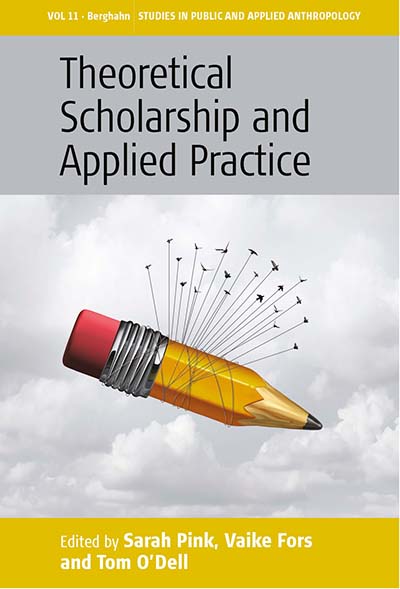
Volume 11
THEORETICAL SCHOLARSHIP AND APPLIED PRACTICE
Edited by Sarah Pink, Vaike Fors, and Tom O’Dell
Academics across the globe are being urged by universities and research councils to do research that impacts the world beyond academia. Yet to date there has been very little reflection amongst scholars and practitioners in these fields concerning the relationship between the theoretical and engaged practices that emerge through such forms of scholarship. Theoretical Scholarship and Applied Practice investigates the ways in which theoretical research has been incorporated into recent applied practices across the social sciences and humanities. This collection advances our understanding of the ethics, values, opportunities and challenges that emerge in the making of engaged and interdisciplinary scholarship.
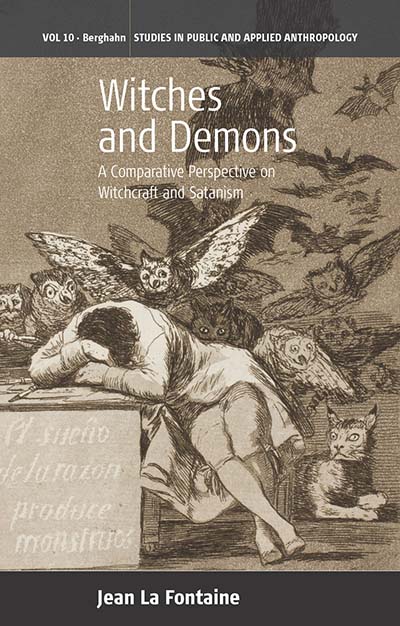 Volume 10 Paperback Original
Volume 10 Paperback Original
WITCHES AND DEMONS
A Comparative Perspective on Witchcraft and Satanism
Jean La Fontaine
Devil worship, black magic, and witchcraft have long captivated anthropologists as well as the general public. In this volume, Jean La Fontaine explores the intersection of expert and lay understandings of evil and the cultural forms that evil assumes. The chapters touch on public scares about devil-worship, misconceptions about human sacrifice and the use of body parts in healing practices, and mistaken accusations of children practicing witchcraft. Together, these cases demonstrate that comparison is a powerful method of cultural understanding, but warns of the dangers and mistaken conclusions that untrained ideas about other ways of life can lead to.
Read Introduction: Understanding the Other
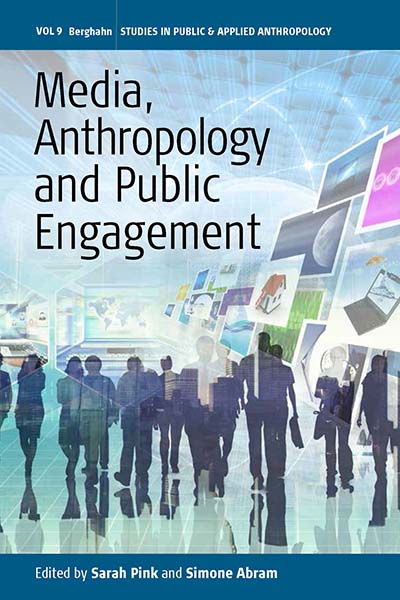 Volume 9 New in Paperback
Volume 9 New in Paperback
MEDIA, ANTHROPOLOGY AND PUBLIC ENGAGEMENT
Edited by Sarah Pink and Simone Abram
Contemporary anthropology is done in a world where social and digital media are playing an increasingly significant role, where anthropological and arts practices are often intertwined in museum and public intervention contexts, and where anthropologists are encouraged to engage with mass media. Because anthropologists are often expected and inspired to ensure their work engages with public issues, these opportunities to disseminate work in new ways and to new publics simultaneously create challenges as anthropologists move their practice into unfamiliar collaborative domains and expose their research to new forms of scrutiny. In this volume, contributors question whether a fresh public anthropology is emerging through these new practices.
Read Introduction: Mediating Publics and Anthropology: An Introduction
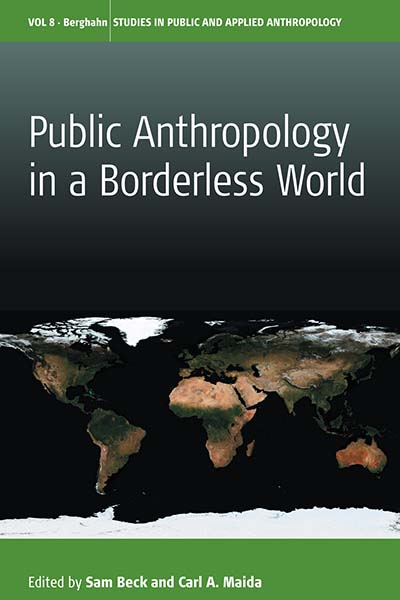 Volume 8 New in Paperback
Volume 8 New in Paperback
PUBLIC ANTHROPOLOGY IN A BORDERLESS WORLD
Edited by Sam Beck and Carl A. Maida
Anthropologists have acted as experts and educators on the nature and ways of life of people worldwide, working to understand the human condition in broad comparative perspective. As a discipline, anthropology has often advocated — and even defended — the cultural integrity, authenticity, and autonomy of societies across the globe. Public anthropology today carries out the discipline’s original purpose, grounding theories in lived experience and placing empirical knowledge in deeper historical and comparative frameworks. This is a vitally important kind of anthropology that has the goal of improving the modern human condition by actively engaging with people to make changes through research, education, and political action.
Read Introduction
For a full list of volumes in the series please visit series webpage.
Higher Education in Critical Perspective: Practices and Policies Series
Around the globe, universities are being reformed to supply two crucial ingredients of a purported ‘global knowledge economy’: research and graduates. Higher education’s aims, concepts, structures and practices are all in process of change. This series provides in-depth analyses of these changes and how those involved – managers, academics and students – are experimenting with critical pedagogies, reflecting upon the best organization of their own institutions, and engaging with public policy debates about higher education in the 21st Century.
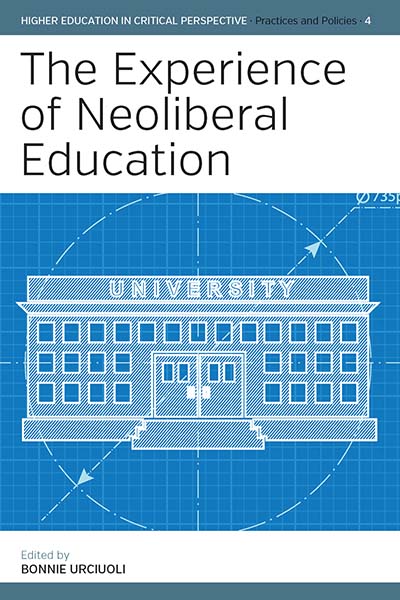 Volume 4 Forthcoming
Volume 4 Forthcoming
THE EXPERIENCE OF NEOLIBERAL EDUCATION
Edited by Bonnie Urciuoli
Through ethnography-based analysis, the contributors to this volume explore how these commodified ‘experiences’ have turned students into consumers and given them the illusion that they are in control of their investment. They further reveal how the pressure to plan every move with a constant eye on a demonstrable return has supplanted traditional approaches to classroom education and profoundly altered the student experience.
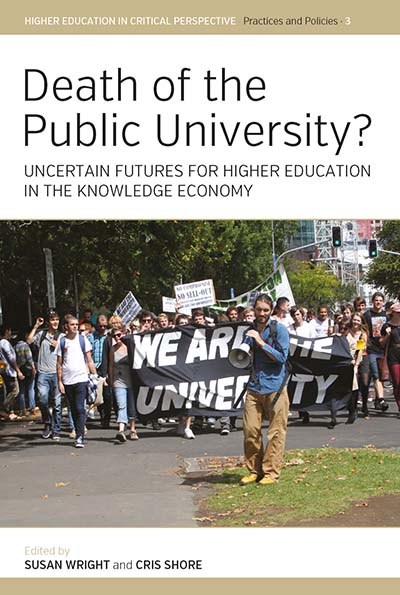 Volume 3
Volume 3
DEATH OF THE PUBLIC UNIVERSITY?
Uncertain Futures for Higher Education in the Knowledge Economy
Edited by Susan Wright and Cris Shore
Drawing on a multi-disciplinary research project, University Reform, Globalisation and Europeanisation (URGE), this collection analyses the new landscapes of public universities emerging across Europe and the Asia-Pacific, and the different ways that academics are engaging with them.
Read Introduction: Privatizing the Public University: Key Trends, Countertrends and Alternatives
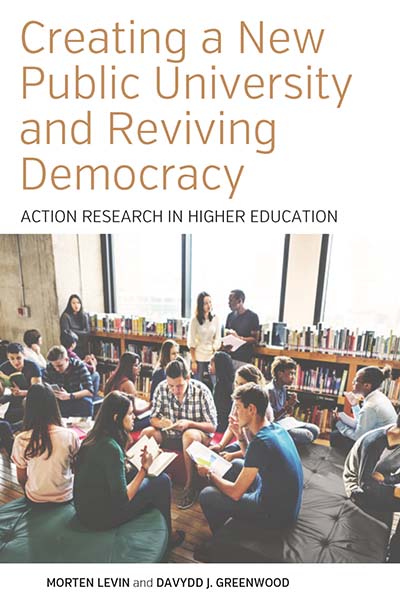 Volume 2 New in Paperback
Volume 2 New in Paperback
CREATING A NEW PUBLIC UNIVERSITY AND REVIVING DEMOCRACY
Action Research in Higher Education
Morten Levin and Davydd J. Greenwood
“In Creating a New Public University and Reviving Democracy, Morten Levin and Davydd Greenwood add their voices to the burgeoning catalogue of critiques of the impact of neoliberal policies on the quality of higher education in Europe and the US. But unlike many such contributions, this work draws heavily on the change management literature and offers a cornucopia of compelling and well-grounded ideas for reform of the academy.” · Times Higher Education
Read Introduction: Democracy and Public Universities
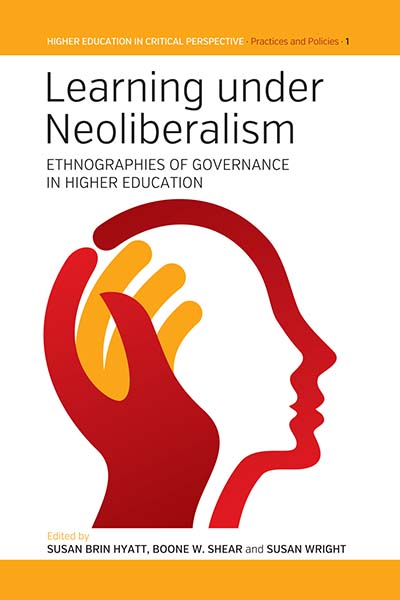 Volume 1 In Paperback
Volume 1 In Paperback
LEARNING UNDER NEOLIBERALISM
Ethnographies of Governance in Higher Education
Edited by Susan Brin Hyatt, Boone W. Shear, and Susan Wright
“All in all, Learning under Neoliberalism is an important contribution to the critical studies of HE transformations taking place in the Western world today. It goes some way in helping us figure out the ways the university as an institution and the student as a telling figure are changing, for better or worse, in neoliberal times. Notwithstanding the Euro-American focus, this volume has much to offer in terms of inspiring similar kinds of endeavours in other geographical and sociocultural contexts. It stands out because of the rich original ethnography and critical thoughts it offers. It is very well-edited and/or written, a delightful read, and will likely make readers feel they are taking part in an engaging conversation.” · Social Anthropology
Read Introduction: Higher Education, Engaged Anthropology, and Hegemonic Struggle
NEW IN PAPERBACK:
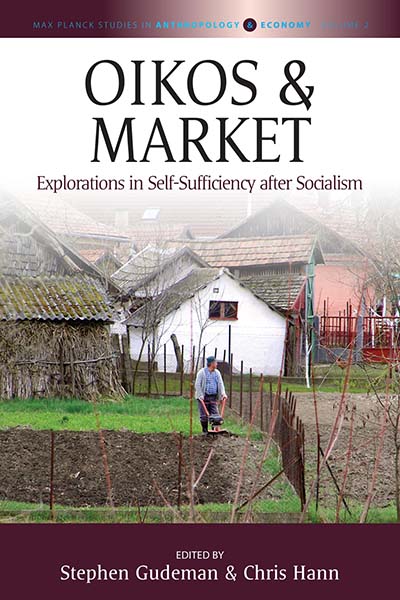 OIKOS AND MARKET
OIKOS AND MARKET
Explorations in Self-Sufficiency after Socialism
Edited by Stephen Gudeman and Chris Hann
Volume 2, Max Planck Studies in Anthropology and Economy
“…the volume offers possibilities for fruitfully reconsidering enduring topics and issues in economic theory that are of great interest not just to anthropologists but to other social scientists and economic philosophers.” · Anthropos
Read Introduction: Self-Sufficiency as Reality and as Myth
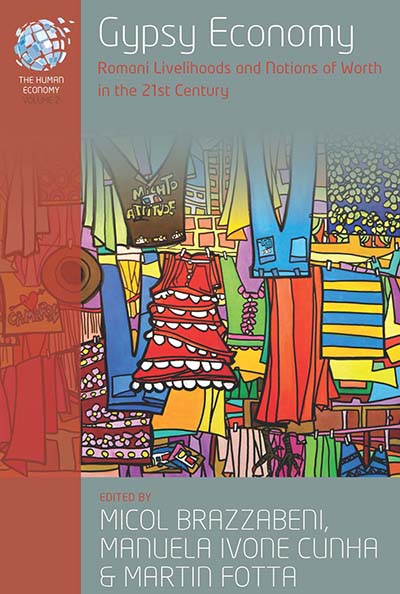 GYPSY ECONOMY
GYPSY ECONOMY
Romani Livelihoods and Notions of Worth in the 21st Century
Edited by Micol Brazzabeni, Manuela Ivone Cunha, and Martin Fotta
Afterword by Keith Hart
Volume 3, The Human Economy
“I specifically recommend this book to those who are interested in anthropology, ethnography, or in the everyday lives of Roma in general. However, those who are interested in unusual economic processes will find this volume interesting, too.” • Cornivus Journal of Sociology and Social Policy
Read Introduction
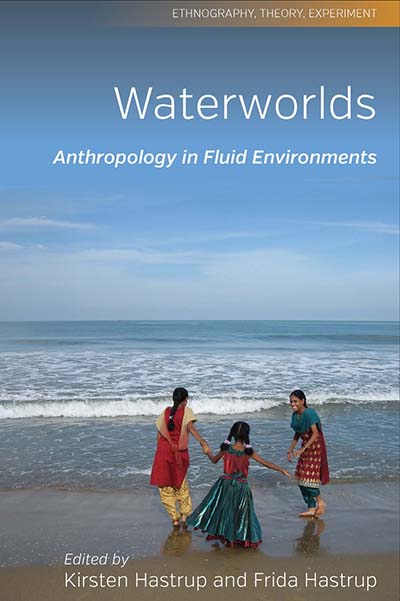 WATERWORLDS
WATERWORLDS
Anthropology in Fluid Environments
Edited by Kirsten Hastrup and Frida Hastrup
Volume 3, Ethnography, Theory, Experiment
“This collection is a rich quarry of manifold explorations of malleable, multiple, and vital waters in social and cultural life, which are always simultaneously a matter of concern for various political actions, and expressive of their own agentive capacities. Despite – or perhaps because of – the multiplicity of waters and approaches, it can be regarded as an asset to have these contributions combined in one book.” · Anthropos
Read Introduction: Waterworlds at Large
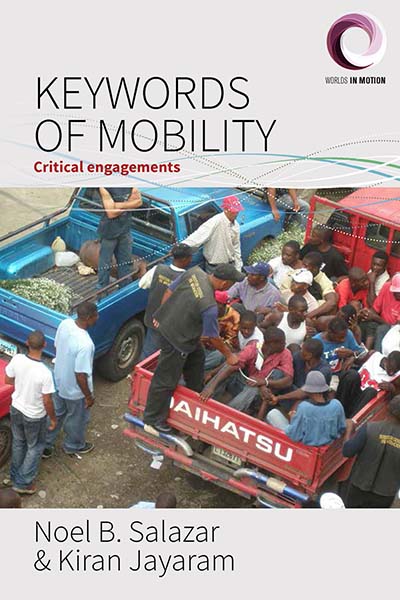 KEYWORDS OF MOBILITY
KEYWORDS OF MOBILITY
Critical Engagements
Edited by Noel B. Salazar and Kiran Jayaram
Volume 1, Worlds in Motion
“[The volume] is careful in its selection of topics, and contributors are up-to-date in their scholarship and rigorous in the construction of their analyses… [A]s a methodological and theoretical approach to the topic, Keywords of Mobility is unparalleled. It represents an important contribution to the literature on studies of forced migration, and human mobilities more generally, by working toward a common, robust vocabulary.” · Refuge
Read Introduction: Keywords of Mobility: A Critical Introduction
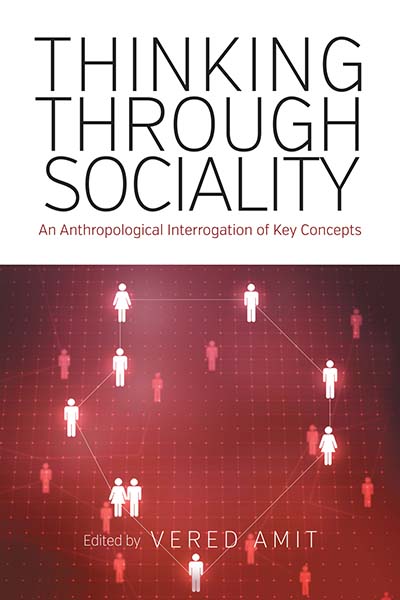 THINKING THROUGH SOCIALITY
THINKING THROUGH SOCIALITY
An Anthropological Interrogation of Key Concepts
Edited by Vered Amit
“[The volume] advances conceptual tools for contemporary anthropology and in provides a valuable source of overviews of the examined concepts, stimulating reading on how to think the configuration of social life.” · Journal of the Royal Anthropological Institute
Read Introduction:Thinking through Sociality: The Importance of Mid-Level Concepts
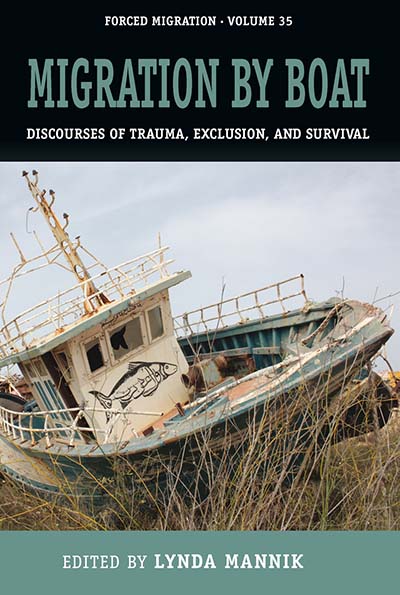 MIGRATION BY BOAT
MIGRATION BY BOAT
Discourses of Trauma, Exclusion and Survival
Edited by Lynda Mannik
Volume 35, Forced Migration
“This book is highly original in its emphasis on representations of enforced sea journeys and their memorialisations. Many, including myself, would like it on their shelf for teaching and reference.” · Michael Pugh, University of Bradford
Read Introduction
BERGHAHN JOURNALS
 Anthropology in Action
Anthropology in Action
Journal for Applied Anthropology in Policy and Practice
Anthropology in Action is a peer-reviewed journal publishing articles, commentaries, research reports, and book reviews in applied anthropology. Contributions reflect the use of anthropological training in policy- or practice-oriented work and foster the broader application of these approaches to practical problems. The journal provides a forum for debate and analysis for anthropologists working both inside and outside academia and aims to promote communication amongst practitioners, academics and students of anthropology in order to advance the cross-fertilisation of expertise and ideas.
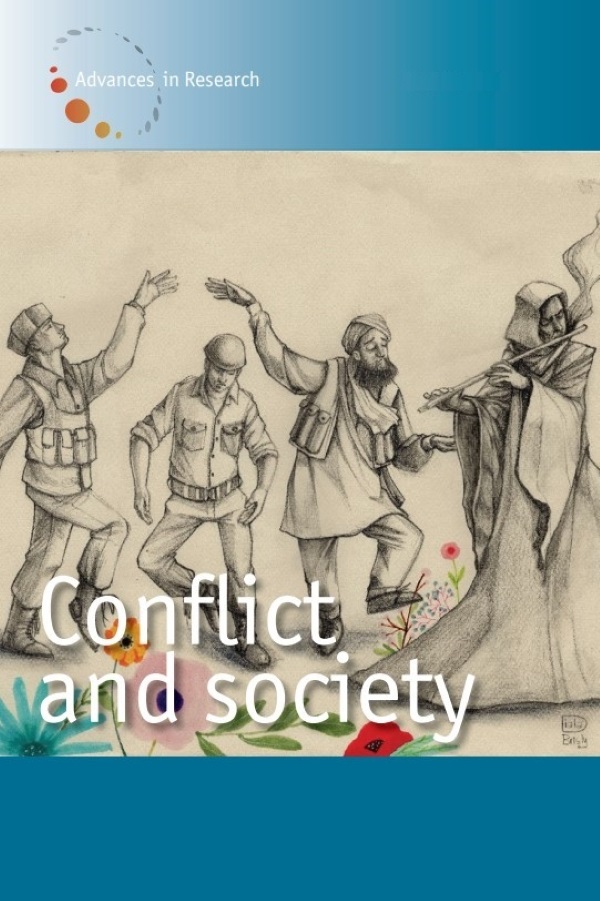 Conflict and Society
Conflict and Society
Advances in Research
Publishing peer-reviewed articles by international scholars, Conflict and Society expands the field of conflict studies by using ethnographic inquiry to establish new fields of research and interdisciplinary collaboration. An opening special section presents general articles devoted to a topic or region followed by a section featuring conceptual debates on key problems in the study of organized violence. Review articles and topical overviews offer navigational assistance across the vast and varied terrain of conflict research, and comprehensive reviews of new books round out each volume. With special attention paid to ongoing debates on the politics and ethics of conflict studies research, including military-academic cooperation, Conflict and Society will be an essential forum for scholars, researchers, and policy makers in the fields of anthropology, sociology, political science, and development studies.
 Environment and Society
Environment and Society
Advances in Research
Environment and Society publishes critical reviews of the latest research literature on environmental studies, including subjects of theoretical, methodological, substantive, and applied significance. Articles also survey the literature regionally and thematically and reflect the work of anthropologists, geographers, environmental scientists, and human ecologists from all parts of the world in order to internationalize the conversations within environmental anthropology, environmental geography, and other environmentally oriented social sciences. The publication will appeal to academic, research, and policy-making audiences alike.
See Also: EnviroSociety, a multimedia site that provides insights into contemporary socio-ecological issues with posts from top scholars in the social sciences that engage readers interested in current environmental topics.
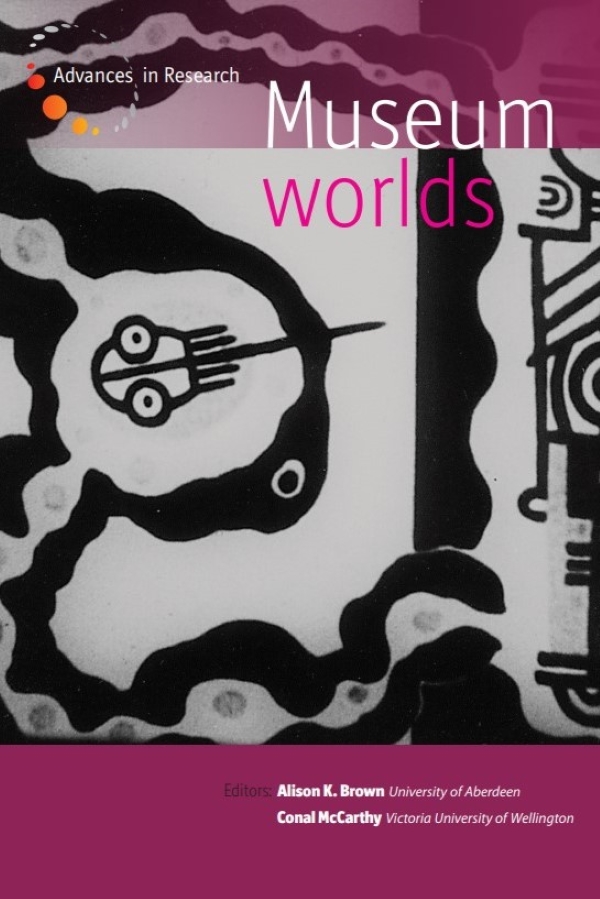 Museum Worlds
Museum Worlds
Advances in Research
Museum Worlds: Advances in Research aims to trace and comment on major regional, theoretical, methodological, and topical themes and debates, and to encourage comparison of museum theories, practices, and developments in different global settings. Each issue includes a conversation piece on a current topic, as well as peer-reviewed scholarly articles and review articles, book and exhibition reviews, and news on developments in museum studies and related curricula in different parts of the world. Drawing on the expertise and networks of a global Editorial Board of senior scholars and museum practitioners, the journal both challenges and develops the core concepts that link different disciplinary perspectives on museums by bringing new voices into ongoing debates and discussions. Articles are of exceptional quality and general interest from around the world.
See Also: Museum Worlds: Companion Site, a site that aims to complement the journal by bringing current museum themes, practices, and developments to the forefront of global discussions in the field of Museum Studies.
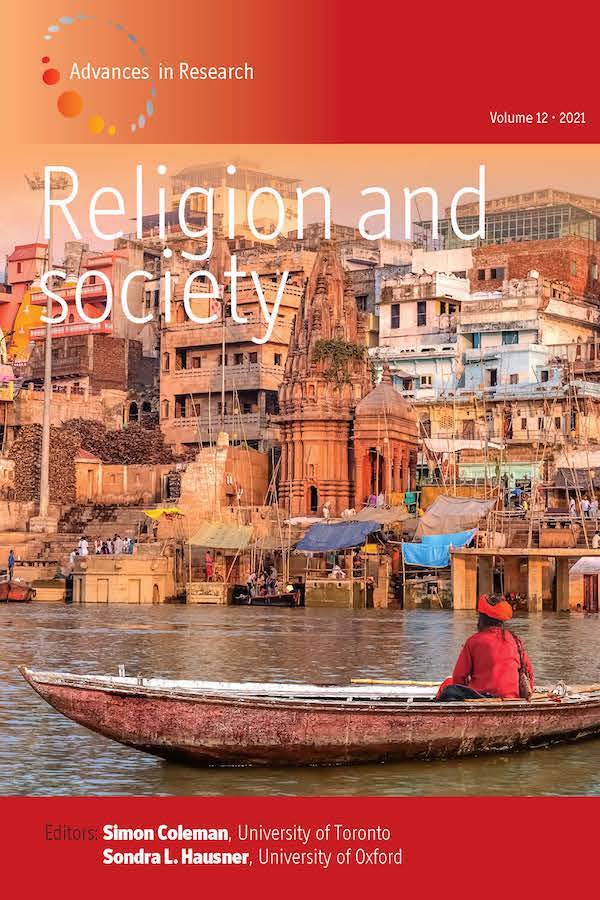 Religion and Society
Religion and Society
Advances in Research
Religion and Society: Advances in Research responds to the need for a rigorous, in-depth review of current work in the expanding sub-discipline of the anthropology of religion. In addition, this important, peer-reviewed annual aims to provide a dynamic snapshot of developments in the study of religion as a whole and encourages interdisciplinary perspectives.
Each volume contains a Portrait section that profiles a senior scholar of religion, with invited essays on the scholar’s work by authorities in their respective subfields. In the Articles section, contributions provide overviews of a given topic with critical, “positioned” views of the subject and of relevant research. In the Debate section, scholars of religion reflect on a high-profile issue or event, and the Author Meets Critics section invites discussants to comment on a recently published volume, followed by a response from the author. Other sections cover teaching, news, and—vitally—reviews of new books and ethnographic films.
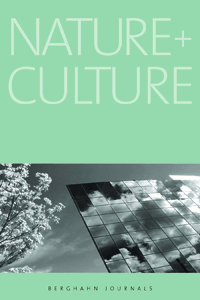 Nature and Culture
Nature and Culture
Nature and Culture is a forum for the international community of scholars and practitioners to present, discuss, and evaluate critical issues and themes related to the historical and contemporary relationships that societies, civilizations, empires, regions, nation-states have with Nature. The journal contains a serious interpolation of theory, methodology, criticism, and concrete observation forming the basis of this discussion.
The mission of the journal is to move beyond specialized disciplinary enclaves and mind-sets toward broader syntheses that encompass time, space and structures in understanding the Nature-Culture relationship. The Journal furthermore provides an outlet for the identification of knowledge gaps in our understanding of this relationship.
Due to the dramatic changes in global affairs related to regional integration, studies can no longer be limited to the analysis of economic competitiveness and political power in global geopolitics. Regions and Cohesion is a needed platform for academics and practitioners alike to disseminate both empirical research and normative analysis of topics related to human and environmental security, social cohesion, and governance. It covers themes, such as the management of strategic resources, environment and society, social risk and marginalization, disasters and policy responses, violence, war and urban security, the quality of democracy, development, public health, immigration, human rights, organized crime, and cross-border human security.


